Is the United Kingdom still a powerful country? The question comes up often, usually with a note of scepticism.
Years of political upheaval, anaemic growth and the fallout from Brexit have made many wonder if the UK has slipped into a more modest role. Yet power is not a single measure, and when Britain’s military, intelligence, nuclear deterrent and global influence are weighed together, the picture looks more robust than the pessimists allow.
This article is the opinion of the author and not necessarily that of the UK Defence Journal. If you would like to submit your own article on this topic or any other, please see our submission guidelines.
The armed forces are smaller than a generation ago, down from more than 200,000 in 2012, yet the equipment they operate is among the most advanced in the world. The Royal Navy sails two modern aircraft carriers and fields, sometimes, Astute-class attack submarines, with Dreadnought ballistic missile submarines under construction to replace the Vanguard fleet. The RAF flies Typhoon and F-35 jets and is experimenting with uncrewed systems that will play a larger role in the coming decade.
Defence spending remains significant. At more than $80 billion in 2024 for our American readers, Britain ranks among the top six globally. That is dwarfed by the United States and China, but it compares favourably with France and is higher than most other NATO allies. Successive governments have promised to move the budget towards 2.5 or even 3 per cent of GDP, though fiscal pressures will make that difficult to deliver in practice.
Nuclear weapons continue to anchor Britain’s strategic position. Since 1969 the country has maintained a submarine on patrol at all times, ensuring an independent deterrent. The stockpile is smaller than those of other nuclear states, but its credibility is not in doubt. With the Dreadnought programme moving ahead, Britain will retain this status well into the 2030s and beyond. Only a handful of countries can claim the same.
Intelligence is another source of weight. MI6, MI5 and GCHQ remain central to the global security architecture. The Five Eyes partnership provides access to information streams that most nations simply do not see. In cyber security, the National Cyber Security Centre has given Britain a central hub for countering digital threats, and industry assessments regularly place the UK near the top of the global rankings. These assets, though often invisible to the public, underpin both national defence and international standing.
Soft power adds a further layer. The reach of the English language, the global presence of British universities, and the continuing role of the BBC give the UK a cultural footprint far larger than its size. London remains one of the world’s leading financial centres. The Commonwealth provides diplomatic links across Africa, Asia and the Caribbean. And Britain continues to hold a seat at the top tables of international politics through NATO, the G7 and the UN Security Council.
All of this is balanced by constraints that cannot be ignored. The economy has been sluggish, growing just over one per cent last year, and productivity has struggled since the financial crisis. Debt, inflation and pressure on public services squeeze government spending. In global terms, Britain’s share of economic output is far lower than it was in the mid-20th century, and sheer manpower is not what it once was.
Yet the overall balance remains clear. Britain is not a superpower on the scale of the United States or China, but it is not a minor player either. Its nuclear arsenal, advanced military, world-class intelligence agencies and extensive diplomatic network put it in a category of its own alongside France, and ahead of most peers. When combined with cultural reach and the capacity to operate alongside allies, these factors ensure that Britain still counts in 2025.
The question is less whether the country is powerful than how it chooses to use that power. The resources exist to play a significant role in global affairs, but they require sustained investment and clear political direction. Britain’s influence is no longer guaranteed by default; it must be maintained through choices made at home.
If those choices are made wisely, the UK will continue to matter in the world for decades to come.


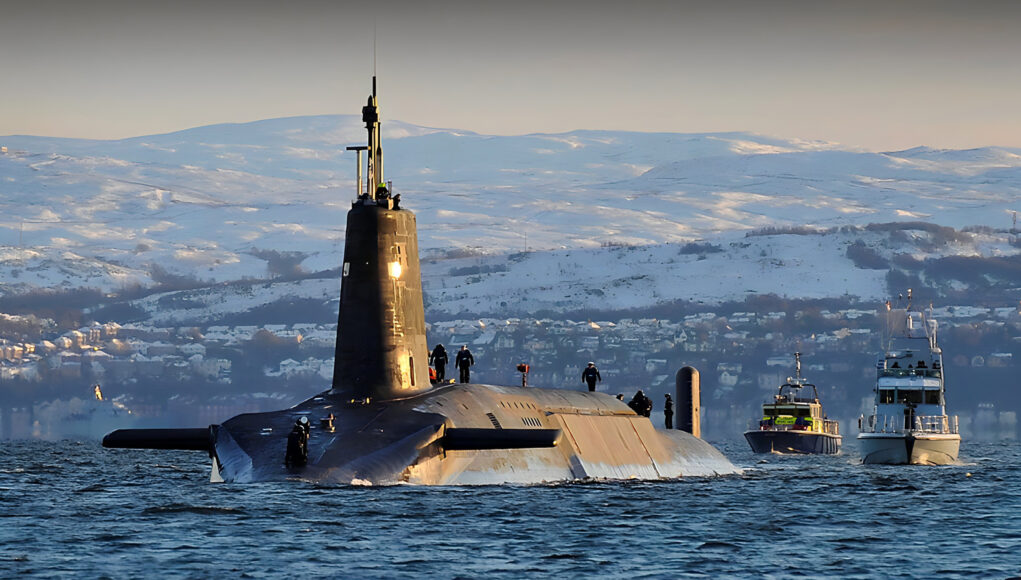
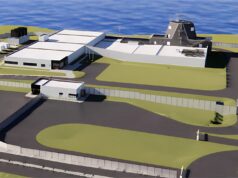
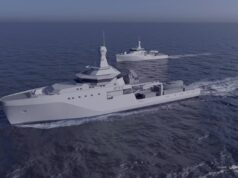
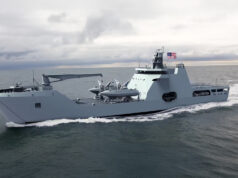
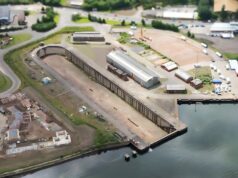

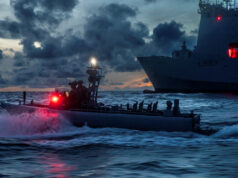


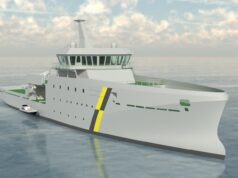


We don’t seem to have a lot to show for our money. The army is tiny and still using largely outdated equipment, the navy is tiny, with very few frigates and 5 subs in service, the number of F-35B’s are growing slowly but they still have very few weapons integrated so the carriers don’t have anywhere near the combat power against a peer or near peer enemy that they should have. The RAF is probably in the best shape of the bunch but it has still fallen in number and lacks in critical areas like SEAD & DEAD and could do with more E7’s and P8’s.
Our power and perceived decline can only be measured on a relative basis with other P5 and emerging powers.
The US navy is tiny with just 81 surface combatants and that might fall to below 70 soon. America can’t make and repair enough submarines to honour a treaty with one of its most important Allies Australia ( AUKUS) and the US just canceled the replacement of its most important ISTAR asset the (E7) to save money. The US is unable to sustain its deployed nuclear weapons systems with the vast cost over runs of the Sentinal program.
France was unable to sustain and deploy even a fairly small force by air in Mali without major support for the UK and USA for theatre lift.
Russia is unable to conduct even basic combined arms warfare, its has almost no armoured vehicles left or much of an airforce and many are questioning the reliability of its nuclear weapons and it has proved largely incapable of fielding ICBM replacements. It lacks the ability to create any warship much larger than a small frigate and its navy just lost a battle to a country with no navy using jet skis.
China is seen as a rising super power but its experience demographic collapse and the fastest rate experienced in human history. It’s spent forty years and billions of dollars trying to build a carrier force and thus far the sum total of its achievements have been to replicate two failed 1970’s Soviet Era STOBAR carriers. I am sure they will do better with the Fujian but it’s taken them a long time to get to the same level the US was at in the 1950’s with Steam catapults and jets.
Other emerging powers
India, Nigeria Indonesia are in an even worse state with tiny budgets and zero ability to deploy force beyond their own boarders.
In that list I would say the UK is about even in terms of power decline.
This is what peace time militaries tend to look like.
And for all the talk of Russia and China we are still very much in peace time.
With Europe & Japan turning the corner on defence spending relative Western power will be more not less.
Well said Jim
France was not unable to sustain a force in Mali but was happy to have the help of NATO allies, it’s a big difference. It helped us avoid overstressing our systems and crews, and the C-17 facilitated logistics. Facilitating does not equal enabling.
China didn’t just copy the Soviet carrier, they’ve learned a lot and are skipping steam catapults to go directly to EMALS. Sadly, I have to tell you it’s unlikely they’ll be (let alone remain) at a 1950s US Navy level. A lot of personnel and pilots from the UK, US, and France are helping China for money, and we sadly don’t even accuse them for treason.
Even if China is facing a demographic challenge, don’t think it will weaken them much, it could even be a blessing in disguise. The only real issue is successfully passing the pyramid inversion milestone.
Underestimating others is a very, very bad decision even while not overestimating yourself.
Talking about inter theatre lift I.e chinook you have no equivalent, it’s a massive capability gap.
I’m well aware of EMALS but you will be aware it’s not actually deployed it’s still on trials. It’s take China a long time to get even a limited capacity for carrier aviation.
NB: UK would not have been able to perform serval operation and speaking of capability gap, France missing chinook looks negligible compared to UK’s force.
Erratum: UK’s gaps.
I think if you have to ask the question, then the answer is at best measured decline. It hasn’t the capacity to act unilaterally to any material extent in any conflict. The Falklands was the last unilateral act of a old dame. Trump has done Europe a favour by forcing it to protect itself. As its purchasing power enables an expansion of its defence the UK’s best hope is to try and find a snug fit with its neighbours.
Ability to project military force – not what it was, but still significant. Global influence, absolutely. MRSS would be something of a Dr Who regeneration.
Half a dozen 20k ton ‘strike frigates’ with well decks, helicopters and Mk41, would give the UK a powerful graduated, tiered ability to intervene globally:
OPVs >T31>MRSS>CSG.
The answer is that the United Kingdom is no longer a super power (that ended in 1942) but is still a regional great power. However that power would be extremely hard to mobilise. It would probably take ten years of high defence spending to realise the country’s military potential. That is not great especially as modern wars are usually come as you are affairs and are over before any widespread rearmament takes effect. But what about the Strategic Nuclear Deterrent I here you say? Well this is an all or nothing strategy/weapon. We are lacking in military capacity in any conflict short of nuclear oblivion. That’s why our defence policy needs both a strategic nuclear deterrent and fully capable conventional forces.
We have the same issue in France, but look at the map… We have to provide support to our friends, but we are not exactly is the situation of the 50´s. It may be unwise to have a large army in France or in UK, too far away from the front line. What is wise is to be able to support our friends with a large navy and air force. This is of great help.
The U.K. was a superpower well into the 50/60s
Well they could try to find out.
surely the blame lays squarely at the door of our government and politicians . that have little or no interest in military matters.. but always seem to offer up our military at every opportunity.
first duty is to have a military to defend us. but. perhaps we may get a decent government in the future, who knows.
just my humble opinion…
Yes Britain is still a powerful country because we still have an independent nuclear deterrent, which gives us a massive Bang for our Bucks. Conventional are fine but they don’t engender the true fear and respect that nuclear does. Nobody would dare approach North Korea agressively because she has the bomb. Would Putin have attacked Ukraine if Ukraine had kept her nuclear arsenal? Britain is still great but could do with being even greater!
It would be nice though if we could demonstrate that it actually works after the two recent failed tests of the same given its ‘power’ lies in its deterrence value and our enemies need to be in no uncertain terms of its operational effectiveness.
The security and defence crises Britain now faces can only be met by working closely with our international allies and tailoring our future forces to complement and integrate with those. The combined effects of the financial crisis, covid, Brexit and national domestic issues will not allow Britain to exercise global power as we did in the past. But we can show leadership in providing more assets committed to the defence of Europe while retaining a secondary, global role based on our Commonwealth links with, for example, Australia and Canada.
I believe we are doing this in our joint support of Ukraine, including today’s meetings with our European allies supporting Zelenskyy, and in the recent Indo-Pacific exercises with HMS Prince of Wales leading an international carrier support group in the recent Indo-Pacific military exercises and diplomatic visits. But the British government must find a way to make a long term commitment without caveats of “when funding allows”. Greater investment in smarter, quicker innovation of new military products and increasing robustness of crucial, national infrastructure may help.
UK could start by defending the borders. If you can’t control the borders, you are destined to revert to the lowest common denominator. ie where eventually no-one wants to get to the UK because it is no better than anywhere else. The borders are controllable, but not by being “nice”.
What border is uncontrolled?
We have some of the tightest borders in the world.
What are you talking about Northern Ireland?
The UK has clearly lost control of its maritime border and it has no capacity to get that back. It is not so much a question of capability as it is will – and the UK has little to no will.
As for the Armed Forces, even with a population of 70 million the UK cannot recruit or sustain adequate numbers of people in the armed forces. The RN today has a strength of 37,000 personnel. In 1914, the Royal Navy had a strength of 147,000 men and grew that to over 200,000 men in the first weeks of the war through reserve mobilization. That was out of a population of 46 million. It is unthinkable that even half those numbers could be attained today out of a much larger population and out of a recruiting base that isn’t restricted to the male population.
What this illustrates is the degree to which the UK is suffering from is a complete collapse of national will and national commitment. This problem is not unique to the UK of course. It plagues the entire West.
The question posed was much bigger than controlling our borders. That should have been done with our EU partners through an agreement on first entry point. It will be solved but not by Trump’s methods. Controlled migration can boost UK’s influence. For example, Trump is now slashing US research funding leaving many scientists jobless. UK could offer them placements to help the introduction of innovative technologies, attract investment in UK and boost our trade.
We shouldn’t be wasting military resources on dinghies though. Our military is way over stretched as it is.
Britain is potentially more powerful now than it has been in years. Not because of military strength or Brexit, but because the sitting US President isn’t trusted, and the UK is one of the few countries who could step into the breech. Although I’m sure Sir Keir is doing his best in this regard, it’s nothing like what he could achieve if he actually cared about foreign and defence policy.
Agree, it’s actually always been the USA that was the biggest threat to Britains power (not its security)
However I think we would be better off with a less powerful Britain and more active US.
The UK tried to push collective security for a century before 1941 but it was only once the US decided to join us that it became so powerful as a concept.
Up to a point, I agree.
We have to consider the British government’s overwheming desire for internal control and surveillance. Much of the Online Safety Act is a joke aimed at making life more difficult for adults. Not only does it store every browser access and every email address its citizens communicate with (unless circumvented), it now insists everyone shows ID every time they access sites that might be deemed adult (not just porn). Today we hear that its fight with Apple to force a backdoor into the encrpytion of their online cloud has been lost, and we hear it from the US government.
Fraud, mostly online fraud, covers over 40% of all UK crimes. The second most common crime is Computer Misuse such as online data breeches. However, the government’s priority is to reduce the strength of encrpytion and to introduce back doors. Mindblowing.
It’s a crying shame when British citizens have to rely on US government officials to update us what the Home Office is trying to do.
Easy answer : Yes.
Powerful in the purest sense of the word, it can level continents with its missiles. That alone is power enough. Add to it, culture, education, diplomatic power and you’d reach the same conclusion. I honestly don’t know why these articles keep resurfacing every 6 or so months. Who are you trying to placate? Those who believe the UK is weak are dumb, they don’t deserve to be answered
The British have a predilection to hand wringing over being weak.. it’s essentially do to a bit of a lack of perspective due to context ( being the premier superpower just a lifetime ago).
Does Britain have the power to influence world events? Not really.
Does the English language enhance British power any more than Spanish does for Spain? It certainly adds to the attraction to migrants.
Much of what is cited to show Britain’ s status is a legacy of a vanished past.
Membership of the UN security council only because we were on the winning side in 1945.
The Commonwealth just a pale reflection of an empire long gone.
An industrial base that has been allowed to shrink to the point where Italian manufacturing is significantly larger than UKs.
I would argue that a major part of Britains current problems is the unwillingness to accept these realities.
As a result, we have wasted £ billions on pointless military interventions that had nothing to do with defence of the UK.
We have hollowed out the armed forces by choosing over priced solutions to match, in quality if not quantity, the USA
To fund these unnecessary costs, successive governments have sold off critical national infrastructure and run budget deficits every year since 2001.
But the game is up. There is nothing much left to sell. The windfall of North sea oil and gas revenues peaked years ago. Borrowing is probably getting close to the point that it cannot be expanded safely. Attempts to moderate the rapid rise in welfare costs have been prevented by the government’s own back benchers.
There is no simple solution nor a quick one.
But if we recognize that we are a small overpopulated island nation with few remaining natural resources ( and prevented by government diktat that these cannot be exploited fully) we might, freed from delusions of grandeur, start to pursue more rational policies.
Norma Desmond in Sunset Boulevard.
No one ever leaves a star.
I think we over glamorise the past and frequently over state the power of the British Empire.
If the British Empire was so powerful and we were such a superpower why was Germany prepared to fight it so easily not once but twice.
An island with a big navy and some good ideas and decent reputation is all we ever were and remain much the same today.
The British Empire was a commercial venture with limited government input and not much to do with the UK for most of its history.
Jim the British empire was immensely powerful. It sculpted the modern world. The fact it was involved in major wars with a number of powers is irrelevant to its power..the British empire over its history survived conflict with no less than 10 other major empires and was outlasted by only 1 of them ( the US) Rome went though no end of wars.
The U.K. has become a weak country and it will continue to decline – we are well on our way to third world status – Enjoy
Simple answer: No.
Brexit has crippled the UK. The money is gone, taxes keep rising, investors are pulling out and moving their capital elsewhere, and even British companies refuse to list on the LSE, choosing New York instead. Step outside the UK and ask around, and the response is always the same: bleak, hopeless, and overwhelmingly negative. The country has become a shadow of what it once was, everyone is leaving.
Yes the UK is a declining power, but that is entirely contextual. And the decline in the power of the United kingdom must always be taken in the context that within a lifetime the UK ruled over the largest and arguably potentially most powerful and influential empire the world had ever known. It controlled 25% of the world’s land mass, 20% of the world’s population.
Essentially the UK had to decline as all such superpowers do.
This means as a culture we often completely miss judge “power” because as a nation we still use the pre-eminent world superpowers as a guide for what is a power.
We are not and never again will be the worlds superpower, that is always an anomaly that lasts for a limited time.. with most powers never actually achieving that level of power.
But we are still a world power as the UK is still part of a limited club that can exert influence anywhere on the globe. Within that club nations rise and fall, but we are still in it and one of the more power nations within that group… but let’s be clear world power is not superpower, the UK cannot up and conquer a nation on a different continent, but it could if decided it had to use force it could bring most nations on the planet to to peace table and get what it wanted and you can count the nations that could do that on one hand.
Simply put if you can park a carrier battle group with 2 squadrons of 6th generation fighter and a SSN with cruise missiles a few hundred miles off the coast of most nations there is essentially nothing they can do unless they have another world power that would go to bat for them.. and in the final analysis the UK has the single other key to being a full world power, a strategic nuclear deterrent.
It sounds a bit basic that to be a world power you need a credible carrier force, SSN and SSBN force, but in the end these are strategic capabilities that none powers cannot counter unless they have massive levels of regional power and are to an extent limited world powers ( Japan, Korea, Germany etc ).
So if you rate the UK it’s still a top flight world power, just not a superpower.
Sitting at the top we have the US as the premier superpower
Essentially China has moved from aspirant superpower to superpower ( it now has the final components in place, MAD, a large blue water navy, and a developing hegemony to lead)
Below you have the world powers that can impact in all domains across the globe in a limited way. UK, France,
Then you have the limited world powers that have one or more domain limited. Russia ( Financial and military expeditionary weakness) , Germany ( expeditionary military, nuclear weakness) India ( expeditionary military weaknesses) Japan ( expeditionary military, nuclear weakness) Korea ( expeditionary military, nuclear weakness) Italy ( nuclear weakness, limited military expeditionary capability) .
Jonathan, vg points. The British Empire had overwhelming technology at those times. Alexander the Great used military tech to rule his world. The Roman Empire was centuries more advanced than the rest of the world during their reign, but failed to replace their brilliant engineers. The battle now is American tech vs China high tech. Who wins? DJT is more interested in running/ extorting the Museums, Kennedy Centre, the Fed, Universities, the media, CDC, department of Labor Stats, on and on. Maga is very much against H1b engineers from India, China. Who wins? Last century, every one laughs at China producing cars, now heavy tariffs are needed to keep American, European car manufacturing from bankruptcy. Same with smartphones. Who will get back to the moon again?
Slow news day? Post an opinion piece to invoke the rage of all the usual suspects…
SDR2025 has many aspirational recommendations, but is very light on detail. E.g. In a naval context there’s absolutely no mention of Type 32, Type 83 (except indirectly), MRSS, MROS, strategic sealift, or replacements for the Rivers. Very similar can be said for the Army and RAF, with specific proposals such as buying more than three E-8’s being rare and uncontroversial exceptions.
Supposedly, a new 10-year Defence Investment Plan will be published before the end of the 2025 which will fill in some of the details. This will apparently replace the “no longer suitable” 10-year Defence Equipment Plan that the MOD stopped publishing in 2023. So, what should the DIP include? Be realistic as most of the small uplift in the UK defence spending will be absorbed filling a pre-existing funding deficit and rebuilding munition stocks. E.g. I see huge advantages from ordering a fifth “improved” Dreadnought, but it won’t happen, not just because of the high cost but it would also unacceptably delay AUKUS by 2-3 years.
RB, SDRs are strategic in nature so inevitably lack detail. Detail should come in the Defence Command Paper or White Paper which should be published in the next few months, possibly in concert with the DIP.
I don’t see a 5th Dreadnought appearing – is there a sound case for it? As it is, we are committed to spending £200bn over 20 years on the Defence Nuclear Enterprise, an eye-watering sum.
Yes – “Strategy” indeed implies means high level. But the likes of the Strategic Defence Review 1998 and the Strategic Defence and Security Review 2010 didn’t shy away from making some very specific decisions rather than vague recommendations. They often name specific ships, aircraft types, formations and projects for cancellation or withdraw from service, suggest new projects, and describe future force levels and required capabilities in some details. By comparison, SDR2025 is surprisingly vague given all the build up to its publication.
still capable, but severly lacking manpower. total armed forces are around 136k, that is way too low. these numbers need to be increased by at least 1/3. * drones don’t replace, they are in addition to
as a comparison Italy is 165k total, France is over 200k (excluding Gendarmerie and reserves)
The UK is soon to be an Islamic country with nuclear waons. I give it ten years before Sharia is introduced and all the major political leaders are muslims. This is the prevailing opinion especially in the USA. Prove me wrong.
Pure fantasy Lucas. Militant tyranical Islam is the polar opposite of most British people & would never be allowed to become more than a fringe extremist cult.
The United Kingdom has already fallen under Islamic influence, and the number of Islamic mayors is increasing. I don’t think so in 10 years, but perhaps in 15-20 years, Britain will be a country with half its population Muslim and therefore with Muslim laws. Take a walk around any British city and you’ll see. But this isn’t unique to this country; Europe will be a caliphate in 20-30 years. Not being queer or being blind to reality doesn’t mean it doesn’t exist. It’s what the people voted for: globalist parties dedicated to ethnic substitution and cheap labor. The lack of reaction from the people and the do-goodism will be the end of Europe as we have known it.
It will all change in the next few yaers, heard of REFORM, the only choice of getting Britain back for its People. If that fails then all will truly be lost not only for the UK but most of the Western World. Needs stopping now kicking back to its primitive hell hole it came from.
The US has more than a few isssues of its own regarding such too…….
Europe has more demographics decline than UK. Europe could be Islamic majority before UK. But there is a growing Hindu community in jolly old England.
Without adequate conventional capabilities in strength enough to be resilient & sustainable, it is insanely irresponsable to be relying on our nuclear deterrent.
When conventional has been allowed to deteriorate so far that you have to wave nukes, you’ve failed to act reponsably. It isn’t either/or, but boith working together that makes an effective deterrent. As we stand, enemies know we’re way too weak conventionally with a fetish for removing capabilities for short term economies & rightly squemish to use our nukes except in dire extremes(as we should be). We need the ability to deploy a division anywhere in the world to pull our weight responsably as a PM of the security council, yet we’re cutting even further amphibious vessels from the remnant that is the RN. The army & RM are way too small & RAF is in a state.
All allowed to run to rot mainly so the super rich can get away with negligable taxes, squirrel away vast riches offshore while services for everyone else have been slashed mercilessly over decades.
I hear a lot from people cooing about the empire and its military might. Naysayers claiming to know the best for the armed forces. None able to present a definitive answer to the issues raised. The truth is, we’re a small country with a small population that is a soft power superpower and a military which, contrary to popular opinion, can actually defend itself.
Barry who used to be an Able Seaman or Tony who used to be a Corporal in the Grenadiers isn’t the font of all knowledge for all things military strategy.
We will see but the UK is waking up even if late.
Undoubtedly we still bring alot to the party but way too much is wasted in procurement.MOD simply wastes money.Also recruitment,why is the government not pushing this more?I have mentioned on here before there is virtually no media coverage of CSG25,were it to have alot more publicity then surely it would do wonders for navy recruitment.There should be alot more adverts pushing all three services on the TV
Yes, Britain is powerful in terms of offence but powerful includes powerful in terms of defence as well and we are woefully lacking in terms of land based air defence systems like David’s sling, Arrow , Patriot and Iron Dome etc. Aircraft are all very well but they have limitations and are not very good at taking out drones, ballistic missiles etc.
It’s more than defence spend or kit counting. We have had a military run by the Treasury for 25 years. Financial control is the principle objective of the MOD not Defence of the Realm. Hence fallling servicemen numbers, delayed/reduced programmes, ships fitted for but not with weapons, capability gaps and air bases withour air defences.
The MOD is simply a civil service department where some of its staff wear funny uniforms. It is not a place where you’ll find heroic figures and born leaders of men. Instead its the kind of place where you’d find lots of papers and staff groups ruminating about bullying, staff diversity and the appropriateness of personal pronouns. If on the other hand you wanted to the RAF to bomb a mortal enemy you’d need to give them 2 weeks notice first in order to get a couple of aircraft airworthy, and you wouldn’t be able to schedule it over the weekend because the RAF is a Mon-Fri 9-5 operation and no one has got budget for overtime. If you expected the enemy to shoot back it would automatically get scrubbed probably because someone was to cheap to buy/install defensive aids and consequently the entire mission would pose a health and safety issue.
Point taken.
Modern leadership in Britain is like when you load up a city or empire building game, put it on fast speed then bugger off to parties, come back to an utter shambles, then simply log off.
Just total disinterest in British history, British prestige, British culture or any notion of a future for Britain, and a total focus on carousing at the taxpayer’s expense, while funnelling British money into their pockets.
That’s the weakness in Britain. It’s not a lack of planes or ships or tanks, but a lack of leadership, a lack of interest or concern, starting right at the top.
Sorry that was meant to be its own comment, not a reply.
Strategically we are still militarily strong with 2 x carriers, 4 x ballistic submarines with the replacements already ordered & will have 7 x nuclear attack submarines, 8 x C17s transport aircraft but in other areas we are weak.
The Puma withdrawn with no replacement ordered, the Sentry withdrawn before the replacement has entered service, Hercules prematurely withdrawn & unlikely to be replaced, only 14 x Destroyers & Frigates, Watchkeeper withdrawn with no replacement ordered, only 148 Challenger 3 ordered, Albion class assault ships & RFA ships withdrawn with no replacements ordered etc.
Capability gaps may save money & please the treasury but wars aren’t declared with several years of advanced warning.
Old Chinese leaders proclaimed their strengths is weakness. Maybe being strong, muscular leads to too many fights and battles. Being weak forces you to excel at other things.
Pres Xi, not long ago, stated that China had too many domestic problems to solve so has no energy or power for international issues. So having power is nice but even invincible Superman from Krypton has limits. And the mighty Avengers have other worldly powers but attracts equally powerful opponents. So, what really works? “It’s the economy, stupid.”
The main reason the U.K. as seen such a massive decline in our military capability since the Falklands War is mainly due to two main reasons, one poor political decision making with politicians placing Defence near to the bottom of their priorities and being ignorant of the three services since the end of National Service, the second relates to the impact of being unable to control immigration, we may have seen a big increase in our population to 70 million but the dilution of our Britishness means that many of our citizens do not feel they owe their allegiance to this country and would certainly not fight for it. Cannot see how things are likely to improve as our politicians seem unable to control both legal and illegal immigration and a general feeling of total decline.
Mike, I don’t agree that your second reason is a driver for our decline in military capability. I am not sure that many people join the armed forces ‘to fight’. If they did they would be sorely disappointed with their career choice. There has not been significant kinetic operations for the army since the end of the combat phase of Op TELIC (Iraq) in April 2009 or the combat phase of Op HERRICK (Afghanistan) ended in October 2014.
As for the RN, then barring isolated random occurences they haven’t fired a shot in anger since 1982.
If many recent immigrants do not want to join the armed forces then that is not of itself a huge issue as the majority population is the main recruiting pool.
The issue is the rising cost of service manpower and especially that of military equipment (military kit inflation is far higher than general inflation), combined with a voracious appetite for ever-increasing funds to go to NHS, Social Care, Other Welfare, Education and Debt interest.